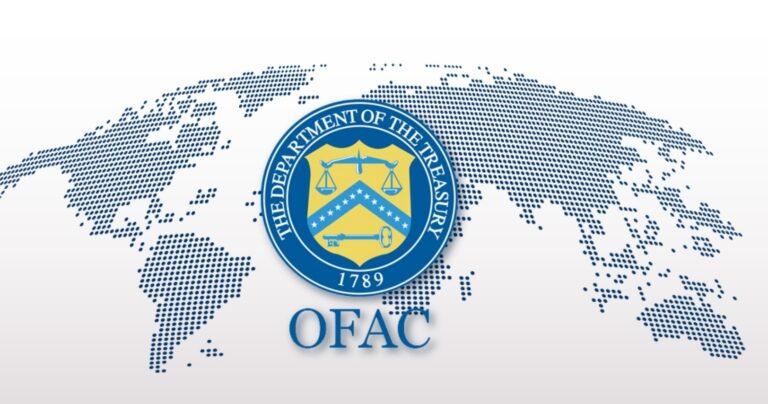March 2025 | Legal & Business News
With geopolitical tensions and regulatory pressure on the rise, businesses operating internationally are facing increased exposure to U.S. sanctions. The Office of Foreign Assets Control (OFAC), the enforcement arm of the U.S. Treasury, continues to expand its sanctions lists, and many companies — even those with no direct connection to the U.S. — find themselves entangled in enforcement actions.
OFAC sanctions can lead to asset freezes, contract terminations, blocked transactions, and loss of access to financial services. Once a company’s assets are blocked, they become legally untouchable, subject to strict reporting requirements, and effectively unusable for business operations. Understanding how to avoid such outcomes is now essential for global enterprises.
The Threat of OFAC Sanctions: What’s at Stake?
Businesses that unknowingly interact with sanctioned individuals, companies, or jurisdictions may find their assets frozen under OFAC rules. Even minor, indirect dealings — such as processing a payment through a sanctioned bank or servicing a blacklisted customer — can trigger a response from regulators and lead to severe legal consequences.
The consequences are far-reaching: once assets are classified as OFAC Blocked Assets, they cannot be moved, invested, or accessed in any form without OFAC authorization. Such freezes apply not only to U.S.-based accounts but also to any assets under the control of institutions subject to U.S. jurisdiction — which includes many global financial networks. Companies caught in this legal trap may face halted operations, cash flow disruptions, and damaged relationships with financial partners.
Key Steps to Protect Corporate Assets
Legal experts stress that proactive compliance is the most effective way to avoid OFAC-related enforcement. The first essential step for any international business is implementing rigorous due diligence protocols. This means screening all third parties — including clients, suppliers, investors, and counterparties — using real-time tools linked to updated OFAC and other global sanctions lists. Ownership analysis is especially important, as many sanctioned entities conceal their interest through complex corporate structures.
The second key measure is the development of a comprehensive internal compliance framework. A functional sanctions program must include staff training, a clear reporting hierarchy, written policies, and automated transaction monitoring. These systems must be regularly tested, updated, and audited to ensure they meet regulatory expectations.
If an asset freeze occurs despite these safeguards, immediate legal intervention is crucial. Companies should consult experienced Sanctions Lawyers to help assess the nature of the freeze, respond appropriately to OFAC, and, where possible, pursue unblocking of the assets through specific license applications. Swift legal action can also limit the reputational damage and help avoid broader regulatory exposure.
Legal Tools and Strategic Response
OFAC provides several legal remedies that allow companies to contest or mitigate the effects of asset freezes. These include applications for specific licenses to access blocked assets, petitions to remove entities from the sanctions list, and written requests for clarification or reconsideration.
Legal teams play a critical role in preparing these filings, gathering detailed supporting evidence, and ensuring regulatory compliance throughout the process. These cases often hinge on nuanced legal arguments, economic justifications, and precise documentation. Success requires both technical expertise and a strategic understanding of how OFAC evaluates each request.
Simultaneously, businesses should consider operational adjustments to reduce future risk. This might include changing supply chain partners, redesigning service offerings, or relocating certain activities outside the U.S. legal reach. Legal counsel helps assess the feasibility and consequences of such moves and develops a coordinated strategy to maintain business continuity.
Preparing for a Sanctions-Heavy Business Climate
The global business environment is shifting rapidly. As more jurisdictions adopt coordinated sanctions policies, the likelihood of enforcement increases — even for companies that have no direct ties to sanctioned regions. Industries such as energy, defense, tech, logistics, and finance are at the front lines, but sanctions risk now affects virtually every cross-border business.
Companies that embrace compliance culture and invest in legal risk management are significantly better positioned to weather the storm. A well-prepared team — with access to expert legal guidance — can detect risks early, act quickly to resolve problems, and maintain investor, partner, and client confidence.
In today’s environment, where one misstep can lead to millions in penalties and years of litigation, protecting assets from OFAC action is not just a legal issue — it is a matter of business survival and long-term resilience.
